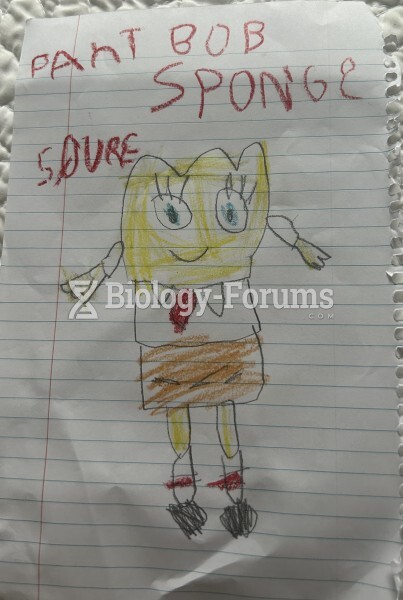|
|
|
Nearly 31 million adults in America have a total cholesterol level that is more than 240 mg per dL.
Adult head lice are gray, about ? inch long, and often have a tiny dot on their backs. A female can lay between 50 and 150 eggs within the several weeks that she is alive. They feed on human blood.
In inpatient settings, adverse drug events account for an estimated one in three of all hospital adverse events. They affect approximately 2 million hospital stays every year, and prolong hospital stays by between one and five days.
Many of the drugs used by neuroscientists are derived from toxic plants and venomous animals (such as snakes, spiders, snails, and puffer fish).
Individuals are never “cured” of addictions. Instead, they learn how to manage their disease to lead healthy, balanced lives.
 A whale off Australia on the spring migration, feeding on krill by turning on its side and propellin
A whale off Australia on the spring migration, feeding on krill by turning on its side and propellin
 A typical module-controlled high-side driver (HSD) where the module itself supplies the electrical ...
A typical module-controlled high-side driver (HSD) where the module itself supplies the electrical ...





